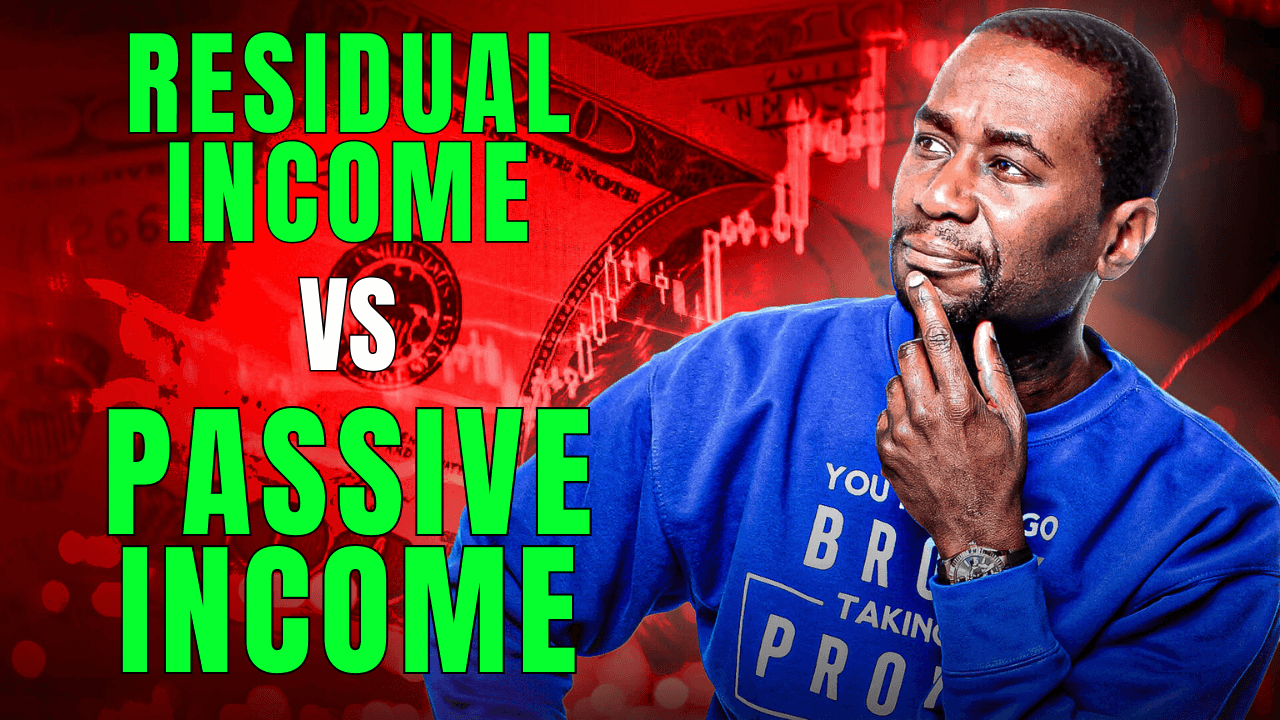Time Stamps:
[00:00:00] Residual and passive income differ in practice.
[00:03:23] Invest stocks; use covered calls for income.
[00:08:26] Passive income: earnings from non-job sources.
[00:11:03] Earn passive income through stocks or businesses.
[00:14:09] McDonald's: Real estate empire and consistent brand.
[00:17:16] Stock market preferred over real estate investment.
Audio Version:
You can also listen to "EP 178: Residual Income vs. Passive Income" on Spotify, ApplePodcasts, Iheartradio, and Stitcher.
Residual and Passive Income: Your Pathway to Wealth
We're diving deep into two of the most buzzworthy terms floating around the Internet: residual income and passive income. You might think these are only attainable if you’re an artist, an actor, or someone with extraordinary talents, but that's not the case. In this episode, I break down the true definitions and practical examples of these income streams, focusing on how regular people like you and me can leverage the stock market to create wealth.
Understanding Residual Income
First, let's break down what residual income really means. According to Investopedia, residual income is money that keeps flowing after you’ve completed an initial investment of time and resources. Think artist royalties, rental income, interest income, and dividend payments.
When people hear the term "residual income," they often imagine the glamour of receiving a paycheck for a song they wrote years ago. However, for most of us, being an artist or owning property may not be feasible. Instead, think about rental income, interest income, and dividends, especially within the stock market. In this arena, you can own stocks and even "rent" them out via covered calls. With at least a hundred shares, you can generate income every 30 days without needing a significant initial investment that's often required in real estate.
The Magic of Passive Income through Stocks
Transitioning to passive income, according to Bankrate, it's money earned from a source other than an employer or contractor. The IRS narrows it down to rental properties or a business in which you do not actively participate.
Once again, let’s think creatively. The property doesn’t have to be a house; it can be stocks. With dividend-paying stocks, you earn small payments every quarter simply by holding the shares. Or consider investing in businesses like Apple or McDonald's. By owning stock in these companies, you earn without participating in day-to-day operations. Every time Apple sells an iPhone or McDonald's expands globally, you benefit financially.
The Simple, Powerful Solution
The simplest way to venture into residual and passive income is through the stock market. It allows you the liberty to work your full-time job while also earning from investments. By understanding and leveraging stocks and options, you can create a financial portfolio without the headaches that typically accompany rental properties.
So, are you ready to embark on this journey? It’s time to transition your active income into residual and passive income and take control of your financial destiny. Let me know in the comments below: Are you chasing residual or passive income? What’s your take on the stock market as the ultimate vehicle?
Ready for the Next Level of Support?
Success isn’t a mystery; it’s a formula. By investing in yourself, doing what most people won’t, and consistently showing up, you build a foundation for long-lasting success. Break free from excuses, take conscious steps towards your goals, and watch how your efforts create a ripple effect in every aspect of your life. Join us inside Power Trades University where traders from around the world come together to support each other.
